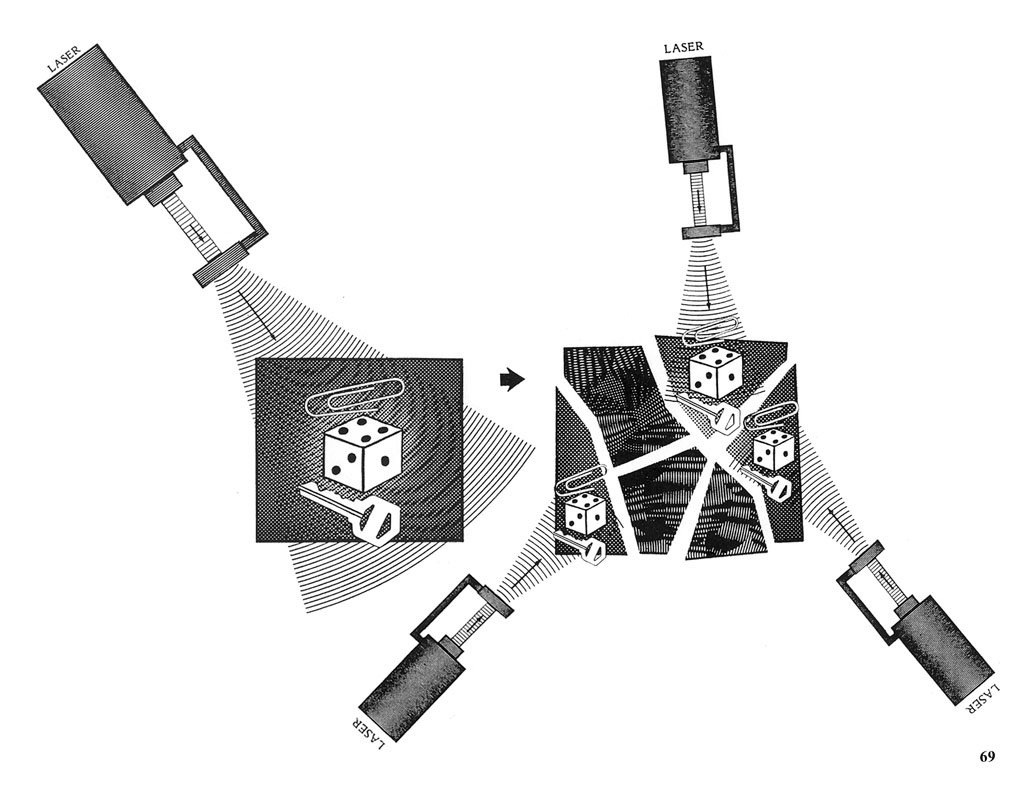All you are doing is moving goal-posts. First it's about how language limits our perceptions of the world. Then it was about how languages are better at conveying certain ideas NOT that it prevents people from understanding or translating them. And now it has nothing to do with language at all, but one's IQ.Wizard22 wrote: ↑Wed Apr 10, 2024 9:37 pm I'll try to make my point again.
An individual's unique intellect or perspective is Unlimited. However he needs to communicate an idea to another person, who may have far greater or far less IQ than him. Those with far greater IQ, will be able to understand, accept, and recognize greater conceptions and thoughts in Quality and Quantity than others. So the basis for understanding is in the different intellectual quotients between individuals.
This is what was referred to as 'Sentience'. Animals have low IQ. Humans have high IQ. Humans can 'know', learn, or understand things that animals cannot and do not. AI systems may have high IQ, and higher than many Humans now. Therefore, it should follow that AI can 'know', learn, or understand things that Humans cannot and do not. And this tends to be the case in how AI out-performs, or performs unexpectedly in tasks given or programmed by its programmers.
Language having a 'shade' or 'color' refers to the limitations of expressing ideas between IQ quotients.
This is stupid. It's like asking an elephant to show you how to use your trunk to drink water. The limitations are in our physiology, not in our language. Again, you are talking about the limitations of brains, not of languages, or symbol-use.Wizard22 wrote: ↑Wed Apr 10, 2024 9:37 pm What language would you use, trying to teach a monkey to count numbers? You will likely need to communicate not textually, but through motions and demonstrations. However, the mathematical concepts are definitely limited. The understanding between the communication, would also be highly limited.
Language is the expression of these limitations. Blacking out a pair of sunglasses, so no light gets through, or having color gradients, are also limitations. When applying this analogy to understanding through communication, this means that some languages are Superior or Inferior to others, and that, far 'baser' forms of communication maybe required.
We can communicate via smoke-signals, or morse-code, to demonstrate such limitations.
ANY symbol can be used to represent ANY idea or perception. NOT ANY brain can perceive of and interpret the world in the same way. Our senses and brains impose more limitations on our perceptions of the world than language could ever hope to.
Nonsense. If communication changes the thing we are communicating how can we ever know that we are talking about the same thing from moment to moment if each time we talk about it it changes?Wizard22 wrote: ↑Wed Apr 10, 2024 9:37 pm Your point that it "does not change the individual thought itself, the thing" ignores that the 'thing' changes via communication, by the limits of communication. Two IQs, of the same level, may understand the same thing, and communicate effortlessly in a way that 'agrees' to it, but it is always a Presupposition, an Implication, a Guess or Estimation that they were actually referring to the "same thing", same occurrence, same pattern, same object, or that their understanding was in anyway remotely similar.
Communication is Intuitive, as a result, on a core level. There are many ideas that simply cannot be 'communicated', because of these limits.
Any idea can be communicated because symbol-use is arbitrary. We create new words for new inventions and discoveries. If our language limited our perceptions then we would never be able to have new experiences, discoveries, or invent new things.

